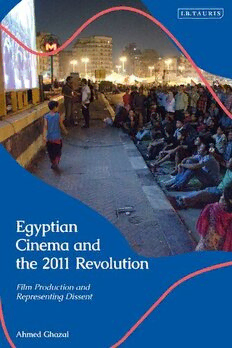
Egyptian Cinema and the 2011 Revolution: Film Production and Representing Dissent PDF
209 Pages·2020·12.629 MB·English
Most books are stored in the elastic cloud where traffic is expensive. For this reason, we have a limit on daily download.
Preview Egyptian Cinema and the 2011 Revolution: Film Production and Representing Dissent
Description:
Egypt's film industry is the largest in the Middle East, with an output that spreads across the region and the world. In the run-up to and throughout the 2011 Revolution, a complex relationship formed between the industry and the people's uprising. Both a form of political expression and a documentation of historical events, 'revolutionary' film techniques have contributed to the cultural memory of 2011. At the same time, these films and their makers have been the target of increasing state control and intervention.Ahmed Ghazal, drawing upon his own background in film-making, looks at the way in which Egyptian film has shaped, and been shaped by, the events leading up to and beyond Egypt's 2011 revolution. Drawing on interviews with protagonists in the industry, analysis of films, and archival research, he analyses the critical issues affecting the political economy of the industry. He also explores the technological developments of independent productions and the cinematic themes of dictatorship, poverty, corruption and police brutality that have accompanied the people's calls for freedom - and the counterrevolution that has tried to suppress them.
See more
The list of books you might like
Most books are stored in the elastic cloud where traffic is expensive. For this reason, we have a limit on daily download.
